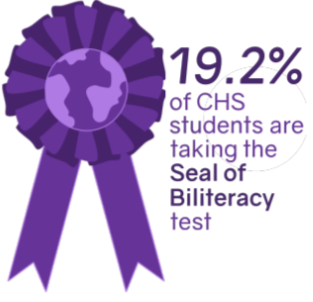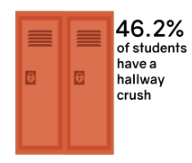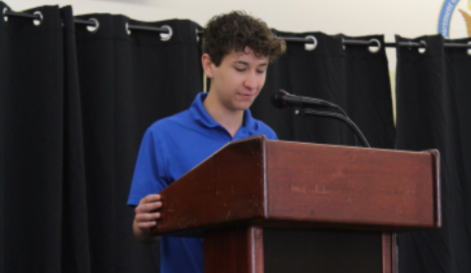Online resources “sparknote” a student-teacher debate
Creative commons photo courtesy of SparkNotes/Wikipedia Commons.
SparkNotes, which was founded by Harvard students in 1999, is now owned by Barnes & Noble. https://creativecommons.org/licenses/by/2.0/
May 10, 2019
Move over, Shakespeare. The most-read material in high school English classes is not any play by Shakespeare, or any novel by Steinbeck. It is Sparknotes.
Thanks to the accessibility of the Internet and its resources, some students have turned to websites like Sparknotes, Cliffsnotes and Shmoop that tell them what they are reading in English class instead of doing the reading themselves.
A female sophomore, who wished to remain anonymous, admitted to being a chronic user of not only Sparknotes for English, but Slader for math and Google Translate for Spanish.
“I get a 100, and [teachers] don’t know,” she said. “Cheating helps me succeed in school.”
Although students can misuse online resources by cheating, English teacher Kathryn Diver said that, if used correctly, Sparknotes can be advantageous to students. “No Fear Shakespeare” is a feature that Sparknotes offers where students can read plays and sonnets in old English side-by-side with translations into modern English. Diver said the resource can be helpful for students who struggle with Shakespeare’s outdated language.
“I like it as a tool to coincide with the reading of Shakespeare,” Diver said. “To use it alongside reading, as a tool for comprehension, no big deal. To use it as the only thing you’re reading? Not a good idea.”
Junior Riley Brennan of Manasquan said she does not use Sparknotes to replace her reading, but rather to guide it, like Diver suggested.
“When I’m reading Shakespeare and stuff, and I don’t really understand the language, I’ll use Sparknotes as a second reference to actually know what’s going on,” Brennan said.
Aside from English, the use of online resources spans across other subject areas as well. Students have access to sites like Slader and Mathway for math, or online translators for Spanish.
Math teacher Scott Stengele said that while Slader, a website with textbook answers, could encourage cheating, there are also some upsides to the services.
“As long as [students] eventually understand the concepts and can do it on their own on my assessments, I don’t really have an issue,” Stengele said. “You still have to figure out how to do it, and if you see work, understand it, so that you can do it yourself eventually… I think it can work as an advantage.”
Spanish teacher Courtney Van Arsdale has been teaching Spanish for many years, and said she can always identify when students exploit online resources.
“Quite frankly, the use of online translators is detrimental to critical thinking skills, and navigating difficult assignments,” Van Arsdale said. “It is academically dishonest, and completely paralleled with plagiarism.”
Although the benefits of online resources are debatable, English teacher Emily Crelin said she believes that using these websites habitually is disadvantageous to students in the long run.
“I think websites like Sparknotes, Shmoop and Cliffnotes are hurting English classes,” Crelin said. “Ultimately, they hurt students as well… In college, students are expected to read hundreds of pages a week. It doesn’t matter what your major is going to be. It’s going to be a hard adjustment.”















